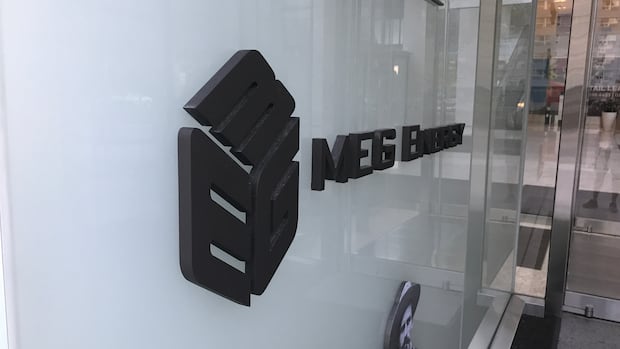A Calgary-based firearms company says one of its rifles being classified as prohibited by the RCMP has thrown his business into “crisis mode.”
“Right now, I’m all riled up, because I get very frustrated. I’ve been in the industry now for like 28 years,” said J.R. Cox, head of Sterling Arms International. “It’s these rulings that, to me, completely devalue and delegitimize the RCMP technical identification team.”
Cox said he learned over the weekend from a client that the Sterling Arms R9 MK1, a semi-automatic nine-millimetre rifle, had been classified in the RCMP’s Firearms Reference Table (FRT) as prohibited. The FRT is a database used by RCMP to determine a firearm’s legal status.
“This caught us completely off-guard, because we were quite confident. We submitted a sample for them to look at, like the paperwork, back in July of last year, to get a [FRT] number for it,” Cox said in an interview. “We built this thing, specifically, to be non-restricted.”
RCMP says it conducted technical inspection
In a statement to CBC News, RCMP said it had conducted a technical inspection of the newly-manufactured Sterling Arms R9 MK1 firearm before publishing its findings in the FRT.
“Prior to that inspection, the Sterling Arms R9 MK1 firearm was unknown to the Firearms Reference Table. However, upon receiving the firearm in June 2025, a technical inspection was completed and a determination of the classification of the firearm was made according to the relevant sections of the Criminal Code and the regulations,” the statement reads.
“As a result of this technical inspection, it was determined that the Sterling Arms R9 MK1 is a variant of a prohibited firearm.”
RCMP said prohibited firearms cannot be legally used, sold, imported, or transferred to another individual. They can only be transported if it’s specifically allowed in an amnesty order.
“Affected firearms may not be used for hunting or sport shooting, either at a range or elsewhere, unless allowed through an amnesty,” the statement reads.
‘We finally thought we had a winner’
Cox said he recognized that for those not familiar with firearms, the black, boxy semi-automatic pistol carbine may look intimidating.
But he said the firearm is designed to use pistol ammunition, and is popular in sporting competitions where shooters need to use a rifle-style firearm that’s accurate, but not too powerful.
“This is hugely detrimental, because we’ve been hit with so many prohibitions on firearms that we manufacture over the last five years,” said Cox, who was also the owner of the Calgary-based The Shooting Edge, which closed its doors last year.
“We finally thought we had a winner that we could sell, that we wouldn’t have any issues with.”
The Canadian Shooting Sports Association said the classification means owners of the R9 MK1 can no longer use the firearm at the range or in the field. Canada’s National Firearms Association said the Sterling Arms R9 MK1 was “the last remaining pistol-calibre carbine still eligible for competitive use in Canada.”
“To most Canadians, that name may mean nothing. But to those who compete in PCC — those who spend thousands of dollars, countless hours, and travel to represent Canada and participate in organized sport shooting — it means everything,” the association wrote in a post on X.
Dispute over R9 as variant
According to Cox, the R9 was labelled by the RCMP as a variant of a firearm that was prohibited years earlier. He disputes that classification, saying the “absolute only interchangeable part” in the rifles is the trigger.
“They’re going to slap another sticker on it and call it arbitrarily a variant of some other firearm. And that’s the frustrating part,” Cox said.
The group PolySeSouvient, a longtime proponent of stricter gun laws, wrote in an email that the problem of manufacturers introducing new models to the market based on their own interpretations is “at the root of this kind of problematic situation,” where the RCMP has to play catch-up after models start being sold to Canadians.
“There are many examples of industry misclassifications, including labelling prohibited guns as legal (restricted or non-restricted), which is a huge public safety concern in addition to the inconvenience this causes those who purchased them,” the statement reads.
“The Liberals have repeatedly promised to change the process so that the RCMP vets and classifies new models before they hit the Canadian market.”
A.J. Somerset is the author of Arms: The Culture and Credo of the Gun. He has written extensively about Canada’s gun culture.

“You have the firearm, the Sterling R9, which has been designed to be legal in Canada … there’s no way to second-guess the RCMP on this, unless you have one and you can take it apart and examine it. But, we’ll take the manufacturer’s word for it,” Somerset said.
“It’s designed to be legal, but then the RCMP decides, no, this is actually a variant … as such, it’s a variant of a prohibited firearm, so it’s prohibited under whatever rule prohibits that firearm.”
He said the situation around the gun is emblematic with an ongoing problem that gun owners have had with how the RCMP makes decisions when it comes to the FRT.
“This has been a real bone of contention for Canadian gun owners, because what the FRT essentially does in practice is it allows the RCMP, administratively, to declare things to be prohibited,” he said. “And if you disagree with them, then it’s really, really hard to do anything about that.”
“One route is to go and get yourself charged, which is not a very bright thing to do, because then you have to fight in court at great expense and risk. And, you know, in theory, you can challenge them. But in practice, I’m not sure how well that actually works.”
Uncertainty for business owners
Wes Winkel, president of the Canadian Sporting Arms and Ammunition Association, said the way the process has been playing out has created uncertainty and disruption for the industry and legal firearm owners.
“For the average general public, they just see another firearm being prohibited,” Winkel said. “But for those of us that are in the business, it means a significant loss of jobs for manufacturers, distributors and retailers, as well as our customers lose their valuable assets.”

On online Canadian gun forums like Canadian Gun Nutz and on the canadaguns subreddit, the move also drew strong reactions.
“Unless you’re on top of what they’re doing, you could be using a newly-prohibited rifle without knowing it,” one poster wrote.
“Good luck winning that argument in court,” another responded.
Somerset said the debate around what is and isn’t a variant has been going on for some time, and is likely to continue.
He added that the R9 is fairly new on the market, so the stir this latest move is causing is likely disproportionately large.
“People [get] really concerned that, you know, no matter what we do to comply with the rules, they’re just after us,” he said. “And it’s that sense of persecution that really, I think, is driving a lot of that response.”







